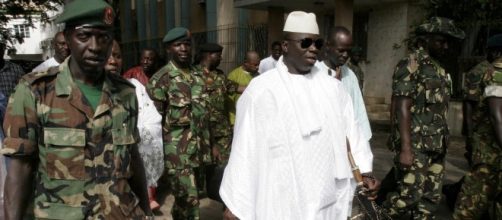The Gambian political crisis has descended into military action with a joint strike force mainly comprised of troops from Nigeria, Ghana and Senegal having crossed the Gambian border. The president-elect, Adama Barrow, has called upon Gambian troops and security services to remain in their barracks until a solution is found, warning that those who leave risk being categorised as rebels. This comes after days of escalating political tensions in the country, which had caused some Western countries to charter special flights to ensure their citizens could return home.
Gambia's troubled political history
Yahiya Jammeh, first came to power in Gambia in 1994 following a military coup and has since ruled a country where human rights abuses are rife and international standards regarding fair elections were rarely met; therefore it was hailed as a fine example of functioning democracy when ruling president, Yahya Jammeh conceded defeat to his political rival, Adama Barrow following the recent election. However Jammeh then challenged the legitimacy of the election result, highlighting, 'unacceptable abnormalities', and demanding that the inauguration of Adama Barrow be suspended until the case was concluded, the fragile political situation was made more unstable by the declaration of a state of emergency by Yammeh, which many interpreted as a final bid to retain power.
Will this lead to war in Gambia?
There is as of yet, no reports as to whether the Gambian armed forces have decided to remain loyal to the president or to peacefully surrender their arms. Many Gambians have already fled across the border to neighbouring Senegal to avoid being caught up in the possible violence of an armed conflict; Western governments had already chartered special flights to remove their own citizens in the days preceding military intervention. Yet there have been encouraging signs that the conflict will not descend into violence, with Gambia's army chief, Ousman Badjie, stating that he would not lead his troops in 'a stupid fight' in what is 'a political crisis'. It remains to be seen if such positive statements will be echoed by others in the Gambian armed forces in the coming hours.

